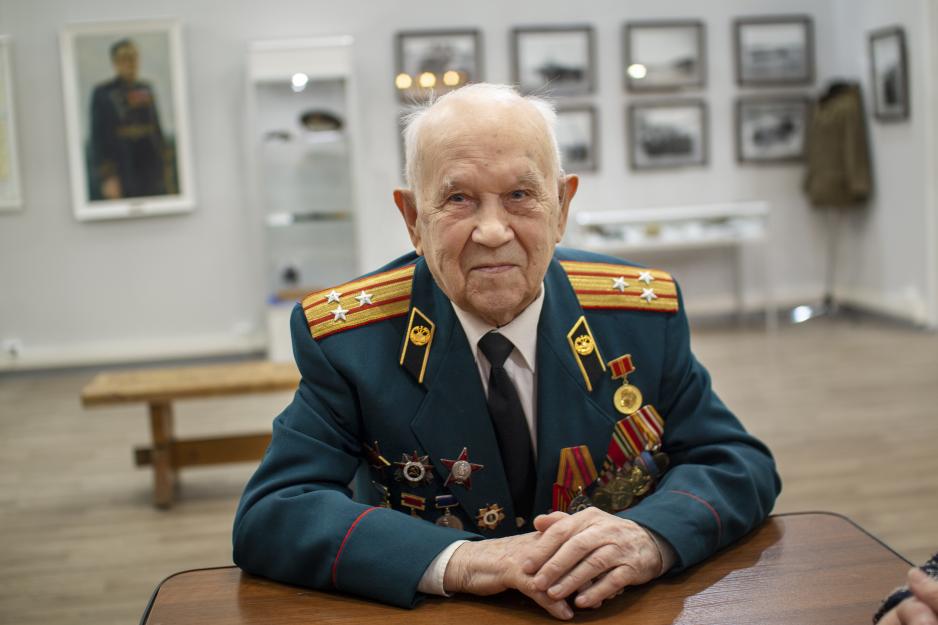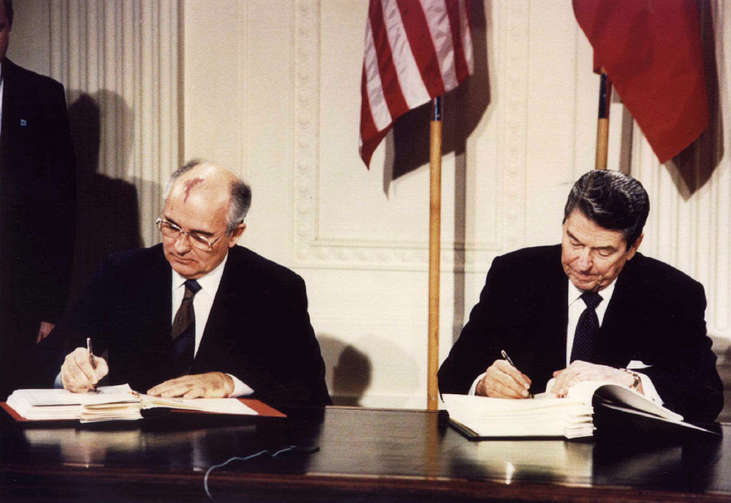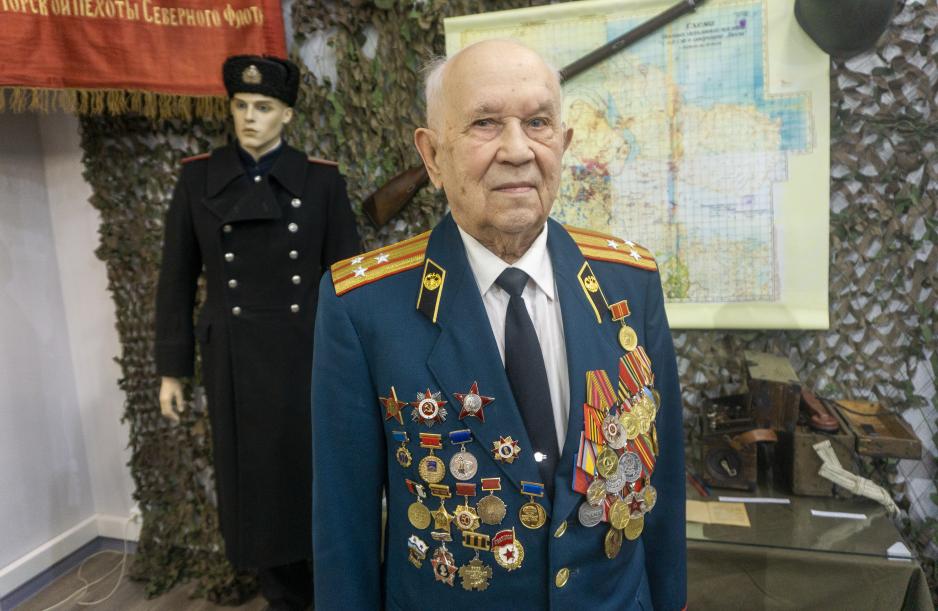War Veteran Pavel (93): - The World Needs Disarmament Now

We must fight for peace. We must stop the arms race. Each side of the conflict must say: "We are not rearming ourselves, neither should you", says war veteral Pavel Nikolayevich Losnov (93). Photo: Amund Trellevik
Pavel Nikolayevich Losnov survived the war that killed 52 million people all over the world. The 93-year old Russian argues that now is the time to enter into new disarmament agreements.
MURMANSK, RUSSIA: - War is an utter evil. You need not have experienced the war in order to imagine how horrible it is, says Pavel Nikolayevich Losnov.
The medals hang heavy on the 93-year old man’s chest. His look is clear, his handshake firm, and his message cannot be mistaken. The terrible disaster that hit his homeland four generations ago must never be allowed to happen again.
- Without the war, Russia would have been a better place today. 52 million people lost their lives all over the world, 27 in Russia alone. This is terrible, Losnov says.
Lived through the Great Patriotic War
As a young boy, he was summoned to military service for the Soviet Union in 1943. His homeland had been attacked by Nazi Germany two years before. In his home county Ivanovskaya east of Moscow, Losnov was put to work at a soldiers training academy.
Almost to the day 75 years since Kirkenes was liberated by Soviet soldiers in October 1944, Losnov meets with a group of Norwegian and Russian journalists at the historical museum in Murmansk.
Asked what it takes for the world to avoid a new great war, Losnov responds:
- We must fight for peace. We must stop the arms race. Each side of the conflict must say: "We are not rearming ourselves, neither should you".
- So you want new disarmament agreements?
- It is not easy and will not happen fast, but we need to establish such disarmament agreements. We must turn mentality around from thinking that conflicts can be solved using war.
- This is an important message to both Donald Trump and Vladimir Putin?
- Yes. They are both free to visit me and I will explain to them, Losnov says with a smile.

In 1987, Mikhail Gorbachev (left) and Ronald Reagan signed the INF Agreement that by and large ended the arms race. The agreement is now cancelled.
Gorbachev warns against “colossal danger”
The last President of the Soviet Union, Mikhail Gorbachev, says in a BBC interview that he is deeply worried about the relationship between Russia and the West today. When asked how dangerous the increasing confrontation between Russia and the West is, Gorbachev replies:
- As long as weapons of mass destruction exist, mainly nuclear weapons, the danger is colossal. All states should declare that nuclear weapons should be destroyed in order to save ourselves and the world.
One of Gorbachev’s biggest political victories was entering into disarmament agreements with the USA and ending the arms race. On 8 December 1987, then-US President Ronald Reagan of the USA and Mikhail Gorbachef signed the INF Agreement, the Intermediate-Range Nuclear Forces Treaty.
This was a disarmament agreement aiming to eliminate all land-based intermediate range nuclear missiles and monitor nuclear explosions. The agreement also promised to reduce the number of strategic weapons.
The USA withdrew from the INF Treaty effective from 2 August this year, claiming that Russia has violated the treaty. In a statement from Foreign Minister Mike Pompeo, also published on the web pages of the American embassy in Norway, it says that “Russia alone is to blame for the expiry of the Treaty.”
- Russia has since at least the early 2000s developed, produced, tested and now deployed several battalions with missiles violating the treaty. The USA first expressed its concern to Russia in 2013. Russia has since systematically, through six years, refused American attempts to bring Russia back into respecting the Treaty”, Pompeo says and adds: “The USA does not intend to remain party to a treaty that Russia violates on purpose.”

Spend money on food, medicine and water in Africa rather than on the military, says Pavel Losnov. Photo: Amund Trellevik
Biggest exercise since the 1980s
Russia launched a major submarine operation in the Barents Sea, the Norwegian Sea and the northern parts of the Atlantic Ocean late in October. A total of ten submarines are involved in the exercise, according to intelligence sources, and at least eight of them are nuclear fueled. This may be the largest mustering of Russian military capacity in the High North since the Cold War in the 1980s.
Researcher Julie Wilhelmsen at the Norwegian Institute of International Affairs (NUPI) argues that the exercise demonstrates that Russia has “ frighteningly high self-confidence these days”.
The goal of the exercise is to demonstrate that Russia is capable of hitting the US’ east coast. Intelligence services believe that Russia now wants to demonstrate its prowess in the North Atlantic and possibly as far west as in the area between Greenland and the US’ east coast, according to Norwegian daily VG.
Some of the vessels currently operating in the waters off Norwegian territory are equipped with cruise missiles holding enough capacity to hit targets on the American continent.
- Spend the money on food and water in Africa
War veteran Losnov has only praise for Norway and Norwegians, and jokes that even Norwegian NATO membership has not been able to destroy the good neighborly relations.
Nevertheless, the 93-year old is worried about the turn the world is taking, with bigger confrontations, conflicts and a troubled relationship between the superpowers.
- At home, I have a book about all the wars of the world through history. And it shows that people always have been at war with each other.
- If we no longer need to spend money on weapons and the military, what should we spend it on?
- First, we must make sure people in Africa have water, bread and medicines, so that they can live happily and for a long time. Europe is not in need the way Africa is. All is well with us, so we can give them to Africa, Losnov says.
This article was originally published in Norwegian and has been translated by HNN's Elisabeth Bergquist.

